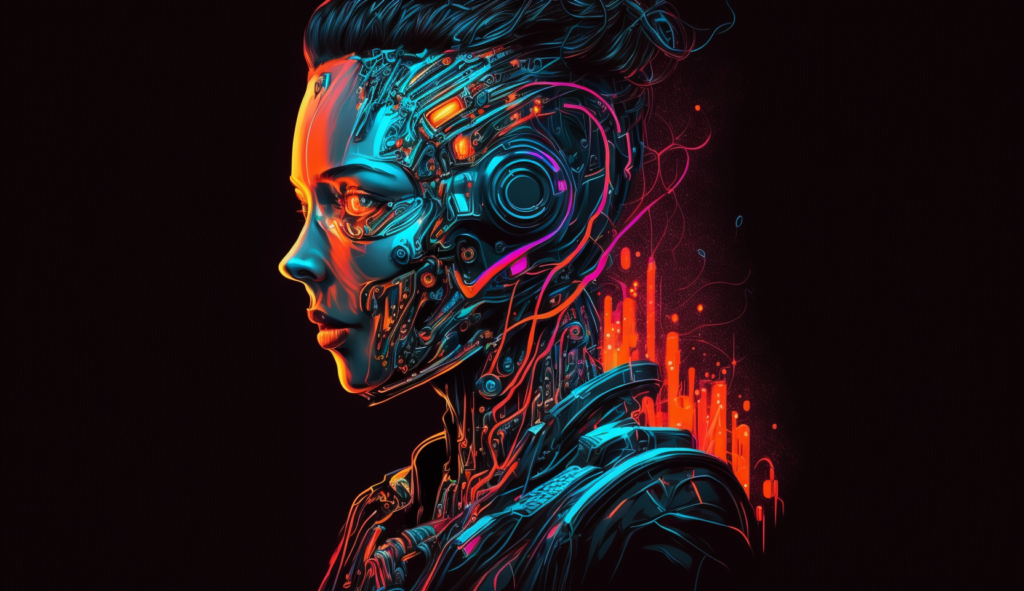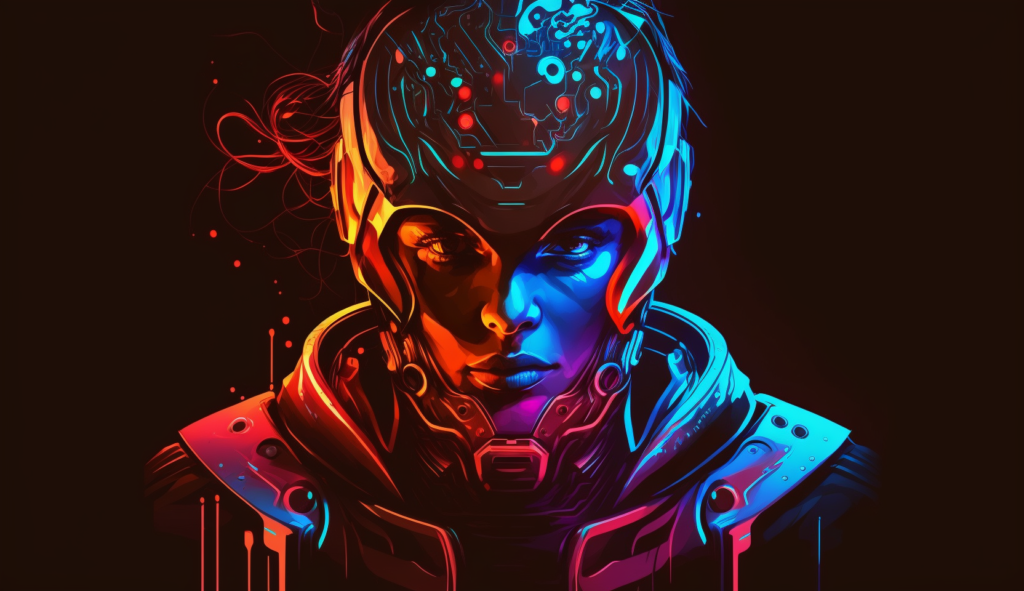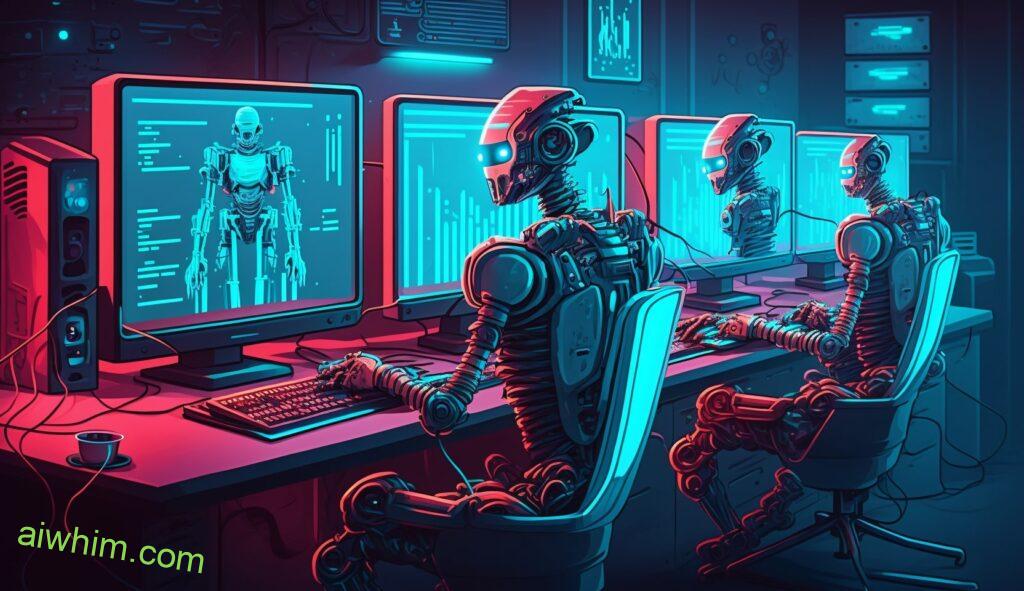Are you an auditor worried about how Artificial Intelligence (AI) and automation may impact your job? You’re not alone. As AI continues to advance, more and more jobs are being impacted by technology – including auditors. The question of whether AI and automation will replace auditors is certainly a valid one, but it’s important to understand all aspects of this issue before making any assumptions.
In this article, we’ll explore the potential implications of AI and automation on auditors’ roles in greater detail. We’ll look at what could be gained or lost as machines take over certain tasks within the audit process, and consider ways that auditors can ensure they remain relevant in an ever-changing industry. Finally, we’ll discuss strategies for navigating through these uncertain times so that professionals like yourself can feel secure knowing their skills are still valued in today’s job market.
Could AI and chatbots take over accounting?
By examining both sides of this complex question, you’ll gain insight into how best to prepare for whatever changes lie ahead – ensuring that no matter what happens, you won’t need to worry about your career prospects being taken away from you anytime soon!

Definition Of AI And Automation
The world of AI and automation is like a wild west. It’s an unknown frontier, where new technologies are constantly arising that could completely revolutionize the way we work. From machine learning to robotic process automation (RPA) to predictive analytics, these advancements have opened up opportunities for businesses that were previously unimaginable. But what exactly do they mean?
At its core, AI technology refers to computer systems which can think, learn and adapt autonomously without human input or guidance. Automation is simply when machines or software take over processes from humans in order to increase efficiency and productivity. In other words, it’s replacing manual labor with automated solutions so that tasks can be completed faster and more accurately than ever before.
AI and automation present both great promise and potential danger. On one hand, they provide benefits such as reducing costs, improving accuracy and freeing up resources for other areas of business growth; on the other hand, they may also lead to job losses in certain roles due to redundancy. So how does this affect auditors specifically? Can their jobs be replaced by AI and automation?

History Of Automation In The Audit Industry
The audit industry has a long history of automation. It can be traced back to the 1950s, when technology first allowed for faster processing of audit data. Since then, automation has become an integral part of auditing and continues to evolve with advances in technology.
Here are three key points about the timeline of automation in the audit industry:
- The use of computers began to take root in the late 1960s and early 1970s, leading to more efficient audits by reducing manual labor required.
- Automation software emerged in the 1980s and 1990s, allowing firms to automate complex tasks such as data analysis and financial forecasting.
- In recent years, cloud computing and artificial intelligence have enabled greater accuracy and speed when it comes to completing audits.
Audit automation is now seen as essential for successful business operations. Companies that embrace this technology gain access to sophisticated tools which enable them to stay ahead of competitors while providing their clients with better insights into their accounts. As these technological advancements unlock new opportunities within the audit profession, they also give professionals more autonomy over how they work – giving them time back for personal pursuits or hobbies instead of mundane administrative tasks.
Benefits Of AI And Automation For Auditors
The potential benefits of AI and automation for auditors are clear. Auditing processes can be automated, allowing auditors to use their skills more efficiently while freeing up time and resources to focus on higher-value tasks. Automation also allows auditors to access real-time data faster than ever before, enabling them to make informed decisions quickly. Additionally, the use of AI technology by auditors can reduce human error in high-risk areas such as fraud detection.
Automation opportunities for auditors don’t stop there; they can leverage this technology to better interpret financial information and provide valuable insights that may have been overlooked previously. By utilizing AI-driven analytics, auditors can gain a deeper understanding of audit findings and present it in an easy-to-understand format to stakeholders or clients. This improved accuracy supports decision making, which ultimately leads to better business outcomes.
It is therefore evident that AI and automation offer numerous advantages for both the auditor themselves and the organizations they represent. As these technologies become increasingly sophisticated over time, it is likely that we will continue seeing new ways for auditors to take advantage of their unique capabilities.

Short-Term Impact On Employment In The Audit Profession
The impact of automation and AI on the audit profession is staggering. It’s almost like a tsunami – sweeping away auditor jobs in its wake! In the short term, the effects of this technology revolution are devastating for auditors around the world:
- Job security among current auditors is quickly diminishing as client companies decide to cut costs by transitioning their audits from human labor to machines.
- Auditor job prospects have become bleak – with fewer positions available and increased competition for those that remain open.
- Temporary job losses will continue to rise dramatically as more organizations adopt automated processes for compliance tasks such as verifying financial statements or examining complex transactions.
This unsettling reality has left many auditors feeling anxious about their future careers, especially when faced with stiff competition from intelligent machines capable of performing highly precise calculations at lightning speed. While it’s impossible to predict how deep the negative impacts of automation and AI will be felt within the audit profession, one thing is certain; the need for creative problem-solving skills and analytical abilities won’t go away anytime soon. Auditing still requires humans who can use technology intelligently while providing critical business insights through analysis and interpretation – something no machine can do yet!

Long-Term Impact On Employment In The Audit Profession
The short-term impact of automation and AI on the audit profession is clear, but what about the long term? Automation trends are rapidly changing in all sectors, especially in auditing. As technological advancements continue to be made, so does the potential for job loss due to automation and AI. While this can be concerning news for those employed as auditors, it’s important to consider both sides of the equation.
Automation can reduce costs associated with audits by speeding up processes that would otherwise require manual labor or human oversight. This could potentially result in more efficiency and accuracy within the field while providing a cost-effective method of conducting audits compared to traditional methods. Additionally, automated processes may enhance quality control by ensuring consistent results across different types of audits. In other words, while some jobs may be lost due to automation and AI technologies, others will open up as firms become increasingly reliant on these advances in their audit practices.
It’s also likely that new roles will arise within the audit industry that focus specifically on managing technology solutions related to audit automation. These positions could include individuals who specialize in developing technology interfaces between existing systems and emerging software tools used for automating complex tasks throughout an entire organization’s financial data process flow. Thus, despite any initial fears regarding job losses caused by audit automation, there remains ample opportunity for those looking to get ahead in their career using newly acquired skillsets tailored toward this specific field.

Technological Advancements In Audit Processes
As technology continues to develop, the audit process is undergoing a transformation. The adoption of audit automation and AI-driven tools are revolutionising traditional auditing practices and making them more efficient than ever before. Audit technology helps reduce manual labour while improving accuracy and overall reporting quality.
AI auditing has made it easier for companies to automate processes that can help provide better insights into their financial data. Automated processes improve the speed of audits as well as increase their reliability by performing tasks faster and with greater accuracy than humans would be able to achieve on their own. Additionally, the use of specialised audit software allows firms to focus on areas requiring deeper analysis or uncovering potential problems in an organisation’s financial statements quickly and accurately.
Audit automation has been a blessing for businesses looking to save time and money, but it does not necessarily mean complete job loss for human auditors. While some basic tasks may be delegated to automated systems, many organisations still rely heavily on trained professionals when it comes to providing sound advice and assurance services necessary for effective decision-making within an organisation. Therefore, although AI and automation have become essential components of modern day auditing, they should not replace the value that experienced personnel bring to the table.

The Future Of Auditing With AI And Automation
As technology continues to evolve and become more advanced, the future of auditing is becoming increasingly intertwined with artificial intelligence (AI) and automation. Automation allows for faster, simpler processes which are less prone to human error. AI technology also has the potential to enhance risk management capabilities as well as improve accuracy in certain tasks.
The introduction of these technologies into the audit process can be seen as a positive development for many auditors. It can lead to increased efficiency in performing audits, allowing for better quality results in shorter periods of time without sacrificing accuracy or precision. Additionally, it could potentially free up resources that were previously dedicated solely to manual auditing tasks such as data analysis and report writing. In this way, AI and automation may help reduce costs while simultaneously increasing overall effectiveness within an organization’s audit team.
Clearly, AI and automation have vast potential when it comes to revolutionizing the world of auditing. This could mean greater opportunities for certified professionals who embrace these changes by expanding their knowledge base beyond traditional methods and investing in additional training that focuses on utilizing new technologies effectively. It’s clear that learning how to leverage these advancements will be key if one wants to remain competitive in today’s rapidly changing landscape. With careful consideration and planning, there is no doubt that those willing to invest their time now will reap rewards far into the future – both professionally and financially!

Skills Necessary To Succeed In An Automated Environment
Looking for a job in an automated world? You may think you need to master the latest AI technology or become a wizard of machine learning. But don’t worry – all you really need is good old-fashioned ingenuity and intuition!
The truth is, automation won’t be stealing anyone’s job any time soon. In order to keep up with our ever-evolving technological landscape, what we need are skills that machines can’t replicate:
- Critical thinking:
- Sifting through data and interpreting it accurately
- Drawing meaningful conclusions from research and analysis
- Problem solving:
- Generating creative solutions to complex issues
- Utilizing innovative approaches to break new ground
In addition to these core competencies, success in an automated environment requires strong communication skills as well as emotional intelligence. It also helps if you have experience working with various types of software and hardware. By combining traditional human skills with the power of modern technology, you’ll be able to stay ahead of the curve no matter how much things change.

How To Prepare For A Job Loss Due To Automation
With the rise of automation and artificial intelligence, many jobs are at risk of being displaced. This means that workers need to be prepared for a potential job loss due to automation. The first step in preparing is understanding the risks associated with automation as well as what technological advancements could lead to career displacement.
The next step is considering reskilling options and adapting your career path if necessary. Many employers offer retraining programs or online courses that can help you stay competitive in an automated environment. Consider taking advantage of these resources while keeping up with current industry trends and developments so that you can remain relevant even if your job becomes obsolete.
In addition, it’s important to proactively think about how you would manage a job loss before it happens. Make sure you have an emergency fund saved, create multiple streams of income, and take stock of any special skills or talents which can be used in other fields should a job loss occur. Doing this will give you peace of mind knowing that you’re ready for whatever comes your way and can provide financial security during uncertain times.

Alternatives For Displaced Auditors
In the age of automation and AI, it’s natural to fear that your job as an auditor might be at risk. Fortunately, there are several alternatives available for those who want to find a new career path. With some retraining and effort you can discover opportunities to grow professionally in other industries or roles.
The first step is to identify what skills you have acquired through auditing and consider how they may apply to different types of jobs. For example, if you’re familiar with financial analysis then pursuing a role in investment banking could be an option. Additionally, the knowledge obtained while auditing can provide insight into the compliance practices of various companies which makes consulting or training roles viable options too.
Not only will exploring these paths help you gain experience outside of auditing, but also give you the opportunity to learn new technologies, boost your confidence and enhance your job search capabilities. The idea is not just look for another job within accounting but actually explore other fields where your current skill set can be utilized more effectively. This way you won’t feel like all hope is lost when faced with potential changes due to automation and AI in the field of audit and assurance services – instead, you’ll be ready for whatever comes next!

Reducing Risks Of Job Loss By Upgrading Skillsets
As automation becomes a more prevalent aspect of the audit process, many auditors are worried about losing their job to AI and automation. Fortunately, there are steps that can be taken to reduce these risks. Upgrading one’s skillset is an important step in preventing job loss due to automation. Auditors should consider investing time into learning new trends in audit automation and adapting their current skillsets to fit within this new landscape. By strengthening their knowledge base on topics such as cloud-based software audits or data analytics, they will become better prepared for any potential disruptions caused by advances in audit automation.
Auditors also need to think strategically when it comes to protecting their career path against job losses due to automation. Developing automated strategies is key; understanding how processes can be automated with minimal disruption is essential, as well as having the flexibility and willingness to quickly adopt new ways of doing things. Additionally, staying up-to-date on changes in technology and industry standards could prove beneficial for those looking to protect themselves from the potential impact of audit automation.
Ultimately, taking proactive measures towards upgrading one’s skillset and developing effective strategies for working with high levels of audit automation will help ensure job security for auditors going forward. With some foresight and preparation, auditors can navigate the changing world of accounting without fear of displacement by machines.

Reskilling Options For Auditors
The prospect of automation and AI stealing your job as an auditor can indeed a daunting one. You are left with no option but to arm yourself with the latest reskilling options for auditors in order to stay competitive in this ever-changing landscape.
Audit technology, such as automated processes and AI, has drastically changed the way audits used to be conducted. As such, you need to upgrade your existing skillset by engaging in audit automation training if you want to remain relevant. Fortunately, there are several ways through which you can upskill yourself so that you can continue to provide valuable services despite the presence of automation or AI.
For starters, many universities now offer courses on accounting technologies and how they can be integrated into various industries – including audit firms. Additionally, private providers also provide short-term programs focused on specific areas like audit analytics or machine learning applications in auditing. Finally, some organizations have begun offering free online tutorials specifically designed for auditors who wish to learn more about automation and its related skillsets. With these resources at hand, it’s easier than ever before for an auditor to make the transition from manual audits to those driven by smart technologies.
This shift towards automation doesn’t necessarily mean job losses; rather it provides an opportunity to utilize knowledge and expertise in new ways that add value for clients while making their respective businesses more efficient too! In light of this possibility, now is certainly the time to take advantage of available resources so that we become adept at using advanced AI-driven tools when conducting audits – ensuring that come what may, the audit profession will still flourish even amidst technological advancements!

Strategies For Adapting To Rapidly Changing Technology
The rapid advancement of technology is shaking up the job market like never before. With automation trends on the rise, it’s becoming increasingly important for workers to understand how to adapt their skills and stay ahead in an ever-changing environment. To do this, it’s essential to keep a pulse on technology trends and have adaptive strategies in place when necessary.
One key strategy for navigating through rapidly changing technologies is staying current with certifications and training relevant to your field. This allows you to continue acquiring knowledge and bolstering your credentials while keeping tabs on what employers are looking for in the job market today. Additionally, maintaining a network of professionals can be beneficial as they can provide insights into potential jobs or skill sets that may become valuable down the line.
By understanding emerging technologies and adapting quickly as needed, you will remain competitive and ensure your career remains secure despite any changes brought about by automation advances. Thinking proactively about your future employment prospects now will enable you to create opportunities rather than being reactive later on once roles have been impacted by these new technological developments.

Considerations When Choosing A Career Path
Navigating the ever-changing job market can be a daunting task. It’s important to consider all of your options and carefully research each one before making an educated decision about which career path is right for you. With advances in technology, like AI and automation, it’s becoming increasingly difficult to determine what jobs will still exist in the future.
When choosing a career path, ask yourself questions such as: What are my career goals? Do I have any special skills or talents? Will I need additional education to pursue this field? How much money do I want to make on average? Is there potential for advancement within that particular industry? Taking time to answer these questions honestly will help guide you toward the best possible fit for your situation.
Once you’ve identified the career options that interest you most, it’s essential to stay up-to-date with advancements in those respective fields. Researching current trends and reading professional publications related to your chosen profession can give valuable insight into its changing landscape – helping you better prepare for whatever opportunities may arise. Ultimately, by doing due diligence when selecting your career path and staying informed of developments within the job market,you’ll increase your chances of success and satisfaction with whichever route you take.

Pros And Cons Of Working As An Auditor In The Automation Era
The world is being transformed more rapidly than ever before, with automation and artificial intelligence (AI) playing a major role in the shift. As an auditor, you may be wondering if AI and automation will steal your job or provide new opportunities for career growth. To answer this question, it’s important to consider both the advantages and drawbacks of continuing on as an auditor during this era of automation.
On one hand, there are many advantages to pursuing a career as an auditor today. Automation has made auditing processes faster, easier and more cost-effective than ever before — giving experienced auditors like yourself access to higher levels of accuracy when working with large datasets. Additionally, reskilling options such as online courses can help you stay competitive by keeping up with the latest technology trends. This could open up even more avenues for advancement within the profession.
However, there are some potential downsides to remaining in this field during times of rapid change. For instance, while advancements in tech have enabled greater efficiency in certain areas, they’ve also increased competition among auditors due to their ability to complete tasks quickly and accurately without needing additional staff members or resources. Furthermore, since automation continues to evolve constantly, professionals must continually update their skillset which can sometimes cause insecurity about job security.
All things considered, whether or not staying in your current position is right for you depends largely on your own personal preferences and goals for a successful career path. Although there may be potential risks associated with entering the age of automation as an auditor, those who remain vigilant and keep themselves updated through ongoing education can find long-term success in this field now more than ever before!

Conclusion
It is clear that AI and automation present both challenges and opportunities for auditors. As these technologies become more advanced, it will be essential for auditors to stay abreast of the latest developments in order to ensure their skills remain relevant.
You should take a proactive approach to embracing new technology in your profession, while also being mindful of potential ethical considerations. With careful consideration, it can be made sure that audit quality remains high while benefiting from increased efficiency and accuracy through automation tools.
Overall, AI and automation should not be feared but seen as an opportunity to improve the practice as auditors. By staying up-to-date with the latest trends as well as acknowledging any ethical implications, auditors can use this technology to enhance their work rather than replace them entirely. It’s time for auditors to embrace the change!
Author: Ole Paulson
Author Bio: I’m Ole and on this website, I share everything there is to know about Artificial Intelligence, and useful tips for using AI to our advantage. I have a background in data science and research and have been following the AI-space for years. You can read more about me in the “About” page.







